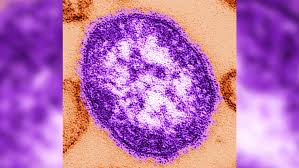Dr. Archana Dhawan Bajaj – Gynecologist, Obstetrician and IVF Expert, Nurture IVF Clinic, New Delhi
Driving Enhancements in Safety and Success Rates in IVF Through Innovation Millions of people across the world are affected by infertility causing emotional distress and feelings of hopelessness. According to a recent WHO estimate, infertility is

Driving Enhancements in Safety and Success Rates in IVF Through Innovation
Millions of people across the world are affected by infertility causing emotional distress and feelings of hopelessness. According to a recent WHO estimate, infertility is a serious health issue with similar incidence rates across areas, especially in India. In high-income countries, the lifetime prevalence was 17.8%, while in low- and middle-income nations, it was 16.5%.
Advancements in invitro fertilization (IVF) have revolutionized the field of medicine by offering hope to those struggling with infertility.
One of the most important medical discoveries of the 20th century was the birth of the first IVF baby on July 25, 1978. Since then, assisted reproductive technology (ART) or IVF technology has evolved into a ray of hope for millions of couples who are having trouble getting pregnant. IVF technology has made considerable strides over the years, steadily raising its success rate while emphasising safety for both patients and children born through the process.
Safety – utmost important in IVF
As IVF becomes more and more common, more ethical questions about the welfare of infants born through the process are coming to light. ART procedures are typically regarded as safe, and the majority of kids born using these methods are healthy. IVF techniques have resulted in millions of successful pregnancies worldwide, and the procedure’s safety has been continuously enhanced by the application of cutting-edge technologies, strict protocols, and in-depth research. To safeguard the wellbeing of their patients, fertility centres all over the world comply to strict standards imposed by reputable medical groups and regulating bodies.
Preimplantation Genetic Testing (PGT) is a significant improvement in IVF safety. PGT greatly lowers the likelihood of embryos with chromosomal problems to be transferred to the uterus Cystic fibrosis, Tay-Sachs disease, Spinal muscular atrophy (SMA), haemophilia, and sickle cell disease are some of the most prevalent single-gene illnesses that PGD has been utilised for. When one or both genetic parents have a known genetic disorder or are known carriers of that disorder, it may be made available. Furthermore, recently developed non-invasive genetic testing helps avoid embryo biopsy entirely, further lowering the possibility of harm to embryos. In addition to improving IVF’s success rate, this development has also reduced the prevalence of some hereditary diseases and congenital abnormalities in offspring.
Intracytoplasmic sperm injection (ICSI), the most widely used IVF procedure involves injecting a single sperm cell right into an egg. This is particularly useful when the male partner’s ejaculate contains extremely few high-quality sperm or when sperm needs to be removed straight from the testicles. While this may seem to forego all natural processes, ICSI newborns are less likely to have abnormalities than babies created normally. Intriguingly, a recent European study found that ICSI teenagers’ mental health and quality of life were marginally superior to those of their naturally conceived peers.
Improved cryopreservation techniques
The cryopreservation method, which involves freezing eggs or embryos at extremely low temperatures for storage and is widely regarded as safe, has been a common procedure in IVF treatment for many years. The need for several fresh embryo transfers and potential consequences like multiple gestations, preterm birth, and related issues have been reduced because to advancements in cryopreservation technology. Although social egg freezing is less common in India than it is in the West, patients can spread out the surgeries, giving their bodies time to recuperate and lowering the risks connected with numerous IVF treatments by cryopreserving eggs or embryos for future transfers. While there is a concern about the health of the progeny by storing the eggs’ or embryos’ to supraphysiological circumstances and years of storage at low temperatures. However, medical study has not yet produced any definite proof of any harmful effects of egg or embryo storage on the health of IVF-born offspring. Rather, high-quality tools used by knowledgeable embryologists and correct management of the embryos are crucial to ensure their overall health and safety.






